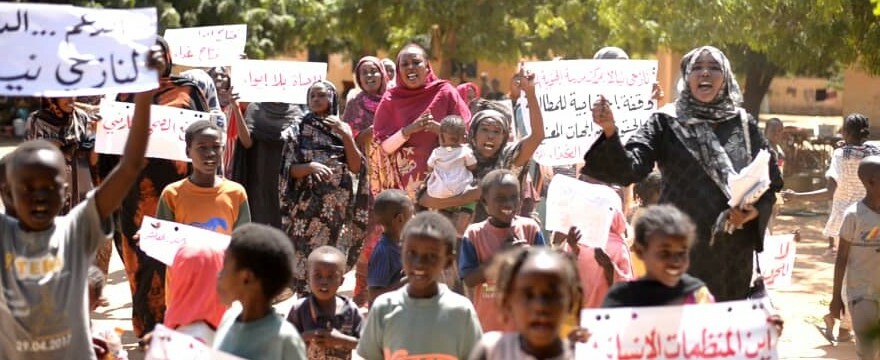Displaced individuals who escaped violence in Nyala, South Darfur, and arrived in El Fasher, North Darfur, have staged protests due to the insufficient services in the displaced camps in El Fasher.
The IDPs at the Southern School camp are urgently requesting assistance in the form of food, medicine, and shelter equipment. They are appealing to organizations, philanthropists, the Humanitarian Aid Commission, the governor of the region, and Nyala officials present in El Fasher to provide the necessary aid.
Speaking to Radio Tamazuj on Tuesday, IDP Ismat El-Tijani Siraj said that 550 families face an uncertain fate amid the outbreak of diseases, the absence of sanitary facilities, and cramped living conditions. “Children under five are suffering from diseases and malnutrition,” he said.
Another displaced woman lamented the hardships of life within the shelter center and the lack of access to essential medication. She explained, “I am now selling falafel near the hospital, but there is no demand for purchases, and up to this moment, I have been unable to purchase medicine for my children, who are afflicted with malaria, dengue fever, and typhoid.”
Al-Rabi Abd al-Hadi, another IDP, confirmed that they have yet to receive any food supplies since their arrival from Nyala two months ago. He voiced concerns about the inadequate management of the center in dealing with the displaced population and called upon the High Committee for the Displaced to address the prevailing issues.
Al-Rabi is an individual with special needs who sustained leg injuries during the initial strike on Nyala. The center also houses individuals with chronic illnesses requiring urgent medical treatment.
Samira Abdel Wahab, the deputy head of the center, disclosed that they currently lack food, and no organizations have extended support to them, aside from some contributions from the state and local initiatives. Samira highlighted that the displaced individuals are reluctant to receive psychological support due to hunger.
Fighting between the Sudanese army and the paramilitary Rapid Support Forces (RSF) erupted on April 15 over tensions linked to a planned transition to civilian rule. It has devastated Khartoum’s capital and sparked ethnically driven attacks in the Darfur region.
After nearly six months of fighting, an estimated 9,000 people have been killed and another 5.6 million forced to flee their homes, according to the United Nations.




